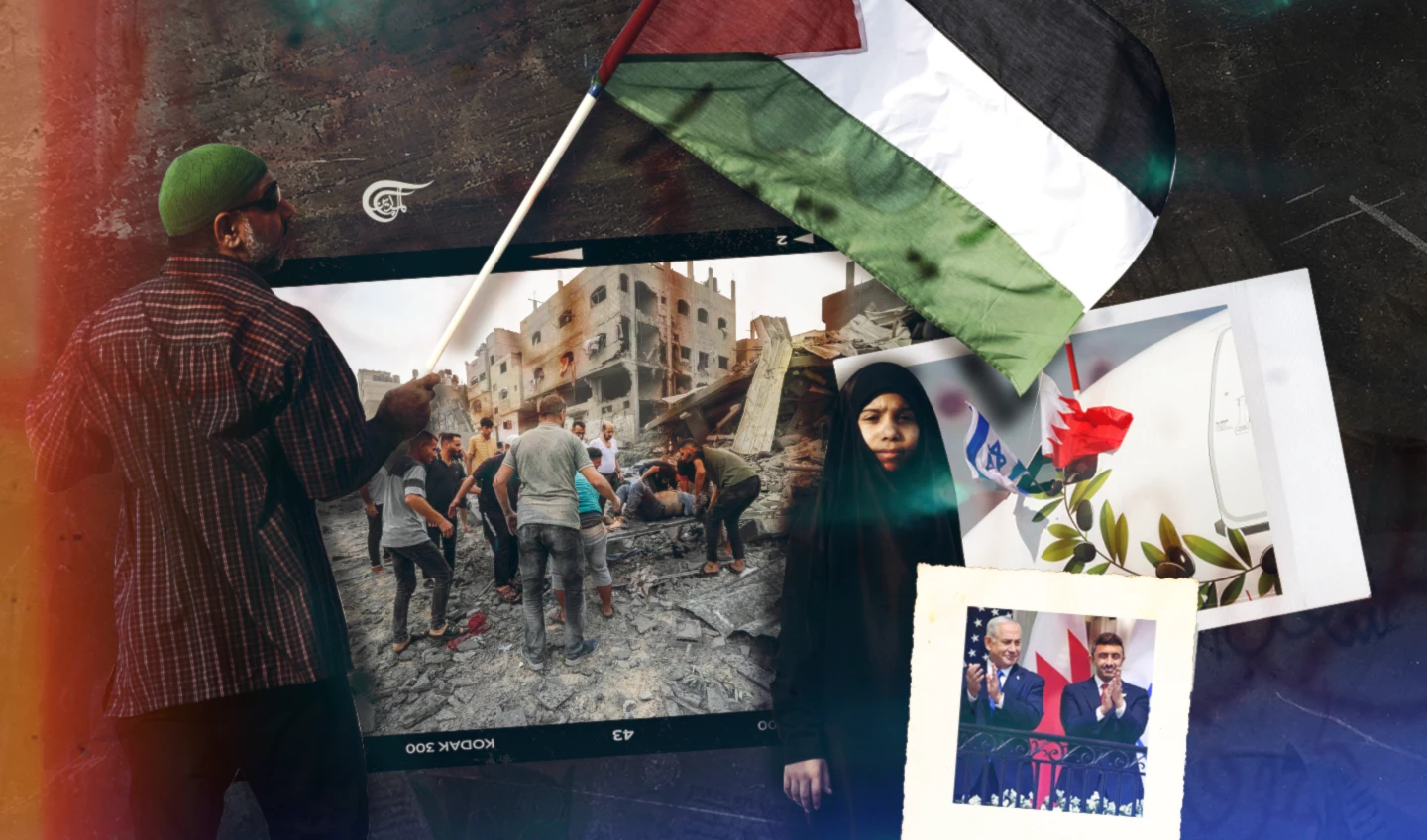Reprisal and Punitive Measures Against Sheikh Abduljalil Al-Muqdad Amount to Deliberate Killing!
Since the Bahraini Ministry of Interior established the Ombudsman, observers have firmly expected that it will be a means to legitimize the violations taking place inside the prisons.
-

Reprisal and Punitive Measures Against Sheikh Abduljalil Al-Muqdad Amount to Deliberate Killing!
Jailed Shiite Cleric Sheikh Abduljalil Al-Muqdad was assaulted by Bahraini security forces after refusing to sign a document declaring he turned down medical treatment. Sheikh Al-Muqdad was reportedly taken to see a doctor who never showed up. When the cleric asked to be returned to prison, members of his police escort demanded he signs a statement saying he refused treatment.
Sheikh Al-Muqdad said he is routinely denied treatment for his deteriorating health. In an audio recording circulated online, Sheikh Al-Muqdad said, “Two weeks ago, I was taken to the hospital in a car trunk during very high temperatures. I was about to die”. He continued, “I lost my breath and I felt that I was suffocating. I was in a trunk while I felt pain in my head. I prayed to God to save me from this ordeal”.
Sheikh Al-Muqdad founded Bahrain’s Al Wafaa opposition group. He was arrested and tortured for his role in the 2011 pro-democracy peaceful movement. Ever since, he has been suffering from numerous health problems due to medical negligence and torture: he suffered severe head pain, deviations in the spine and atumor in his leg that hinders his movement.
In a statement on Wednesday, Bahrain’s highest Shiite religious authority Ayatollah Sheikh Isa Qassim warned that any attack on Sheikh Al-Muqdad constitutes “an assault on Islam and the homeland”. Ayatollah Qassim said that the voices denouncing “the humiliation of Bahrain’s political prisoners and the psychological and physical abuse they endure must never fall silent”.
Besides, 6 Bahraini opposition factions, including Al-Wefaq, have jointly called for the immediate and unconditional release of Sheikh Al-Muqdad, expressing grave concern over his assault. “We stand in defence of all political detainees who are constantly exposed to all forms of abuse and harassment in the regime's prisons”, the opposition groups said, calling for the release of all political prisoners “andputting an end to the policy of collective punishment”.
For their part, the Bahrainis take to the streets on daily basis in solidarity with the oppressed cleric.
Also, the political detainees in Jau Prison have been protesting since Thursday morning throughout the entire facility in a show of solidarity with Sheikh Al-Muqdad. They refused to return to their cells until they are allowed to see Sheikh Al-Muqdadand make sure he is safe. In a statement, the prisoners said they expect the authorities to resort to “force and brutality to disperse them”. They also demanded an end to the ill-treatment of all prisoners.
Local rights groups have strongly condemned the recent assault on Sheikh Al-Muqdad;they maintained he is a victim of medical negligence and demanded an investigation into the incident and wanted the perpetrators of the attack to be held accountable.
Besides, they have accused Manama’s interior ministry Ombudsman of turning victims into perpetrators and dismissed its conclusions on the assault of the cleric. The oversight body’s latest report claims that Sheikh Al-Muqdad “refused to go to the doctor’s appointment, and then insulted, and cursed one of the police officers who later filed a complaint against him”.
Rights activist, Sayyed Ahmed Al-Wadaei, revealed that “the Interior Ministry, in complicity with Public Prosecution, decided to fabricate a case against Sheikh Abduljalil Al-Meqdad after he exposed the blatant abuse he was subjected to in Jaw Prison”. “This is how the victim turns into a perpetrator. The aim is to silence any voice speaking out about any violation against prisoners,” he stated.
Since the Bahraini Ministry of Interior established the Ombudsman, observers have firmly expected that it will be a means to legitimize the violations taking place inside the prisons. In its recent statement on the assault on Sheikh Al-Muqdad,this governmental institution revealed once more its abhorrent sectarian attitude.
The Ombudsman has always supported the measures taken by the Jaw Central Prison administration regarding depriving political detainees of their obvious rights, defaming them and trying to introduce them as criminals and liars, and therefore they deserve punishment. In all the statements that are supposed to be written after conducting a transparent investigation, we find them literally adopting the Ministry of Interior’s narrative in a bid to show Bahrain’s detention facilities as Plato’s virtuous city where justice and human rights are cherished.
It would have been more useful for the Ombudsman to be an institution that combats injustice against all political prisoners. In reality; however, it is a royal institution whose doctrine is sectarian par excellence.
Activists have repeatedly expressed concerns about the policy of medical and negligence in the overcrowded and unsanitary prisons, which facilitate the spread of illnesses, and pose a threat into the detainees’ life.
The wife of death row inmate Mohamed Ramadan reported that he was for months denied access to medical treatment for an excruciatingly painful lump in his neck.
Hassan Ali Rashid, another political prisoner, has fallen victim to medical negligence after being misdiagnosed and given the wrong medication that exacerbated his skin condition. Hassan is currently serving his 18-year sentence in Jau following his transfer from Dry Dock prison where he contracted scabies.

 Sondoss Al Asaad
Sondoss Al Asaad
 5 Min Read
5 Min Read









